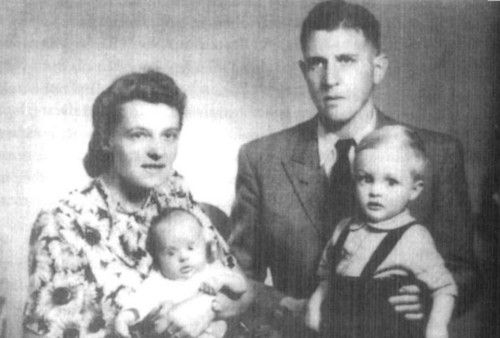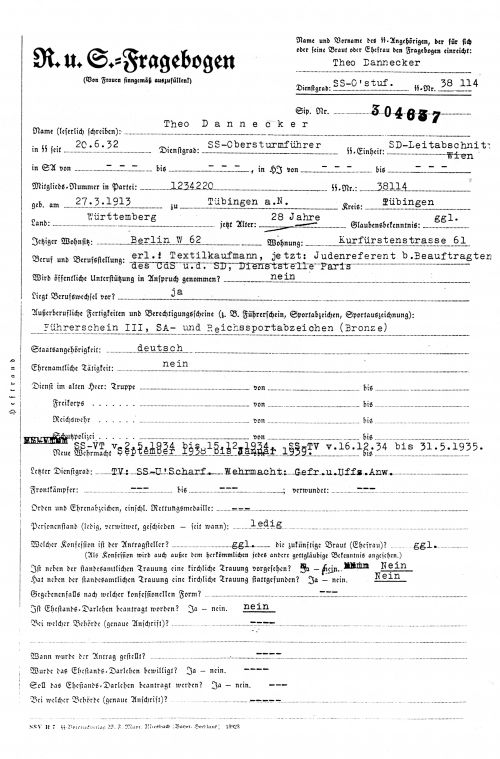Theodor DANNECKER

Theodor Dannecker and family - Sofia 1943
Theodor Dannecker was born in Tubingen, on March 27, 1913. He first worked as a textile dealer and he joined the Nazi Party and the SS during 1932, some three years later in 1935, he became a member of the Sicherheitsdienst. In March 1937, he was transferred to Bureau IV B4, the branch of the RSHA devoted to Jewish matters, under Adolf Eichmann.

Dannecker's Fragebogen from his personal file
Theodor Dannecker was posted to Paris in September 1940, as the head of Eichmann's Paris office, and he received his orders from Eichmann direct. As the 'Jewish expert' of the Gestapo and Eichmann's deputy with the Paris SIPO -SD, Dannecker claimed the credit for being the first to propose continuous deportations of Jews from France to the east. He was constantly prodding the Vichy authorities to take more active anti-Semitic measures. Xavier Vallat, the first French Commissioner for the Jewish Question, who clashed with Dannecker over the long-range German policy on the Jews in France, described Dannecker as 'a fanatical Nazi who went into a trance every time the word Jew was mentioned.'
Dannecker was replaced by Dr. Heinz Rothke, in July 1942, in Paris, and Dannecker was recalled back to Berlin and in January 1943, he was posted to head Eichmann's bureau in Sofia, Bulgaria. During March 1943, Jews were deported to Auschwitz and Treblinka death camps in Poland, where the majority perished.
Dannecker was posted to Verona, Italy in October 1943, and then onto Hungary in the summer of 1944. Dannecker returned to Italy during October 1944, where he was appointed Jewish Commissar for Italy, and he remained part of the Eichmann Commando until the end of the war. He was arrested by the Allies, and he committed suicide in an American prison camp in Bad Tolz on December 10, 1945.
Sources
R.S. Wistrich, Who’s Who in Nazi Germany, published by Routledge, London and New York 1995
G. Reitlinger, The Final Solution, published by Sphere Books Ltd, London 1971
Photograph – Private Archives
Document - Wiener Library
© Holocaust Historical Society 2018

